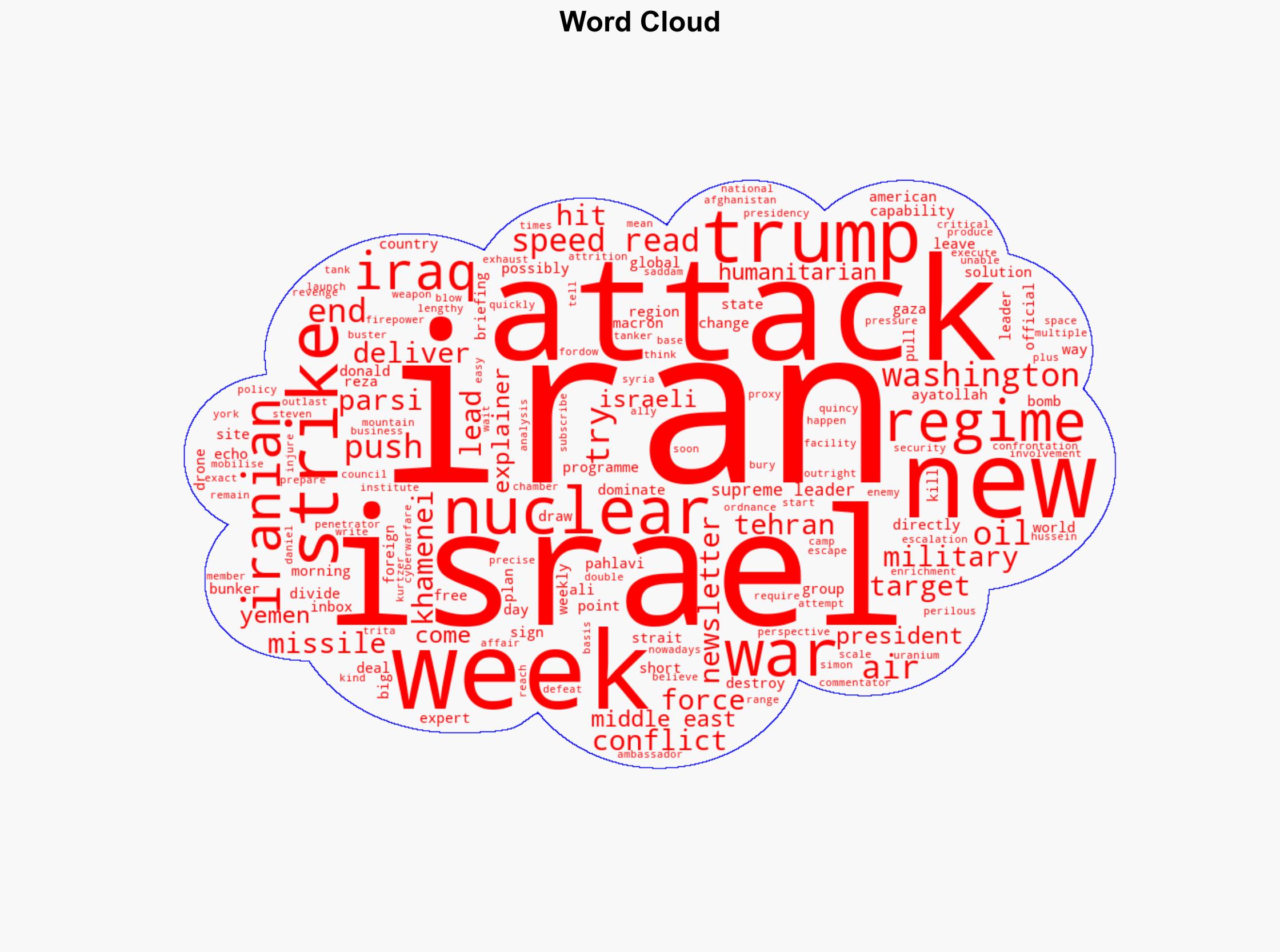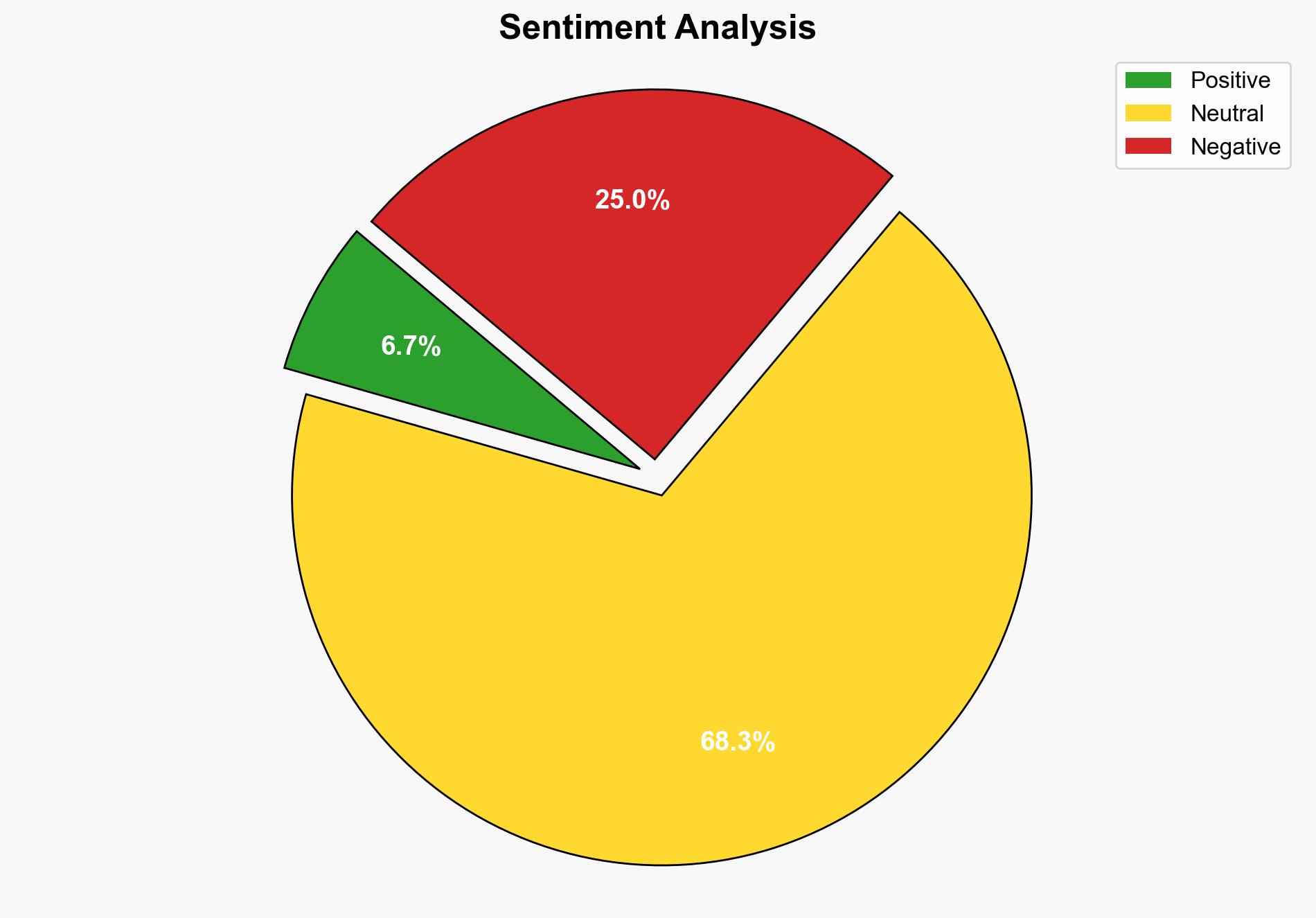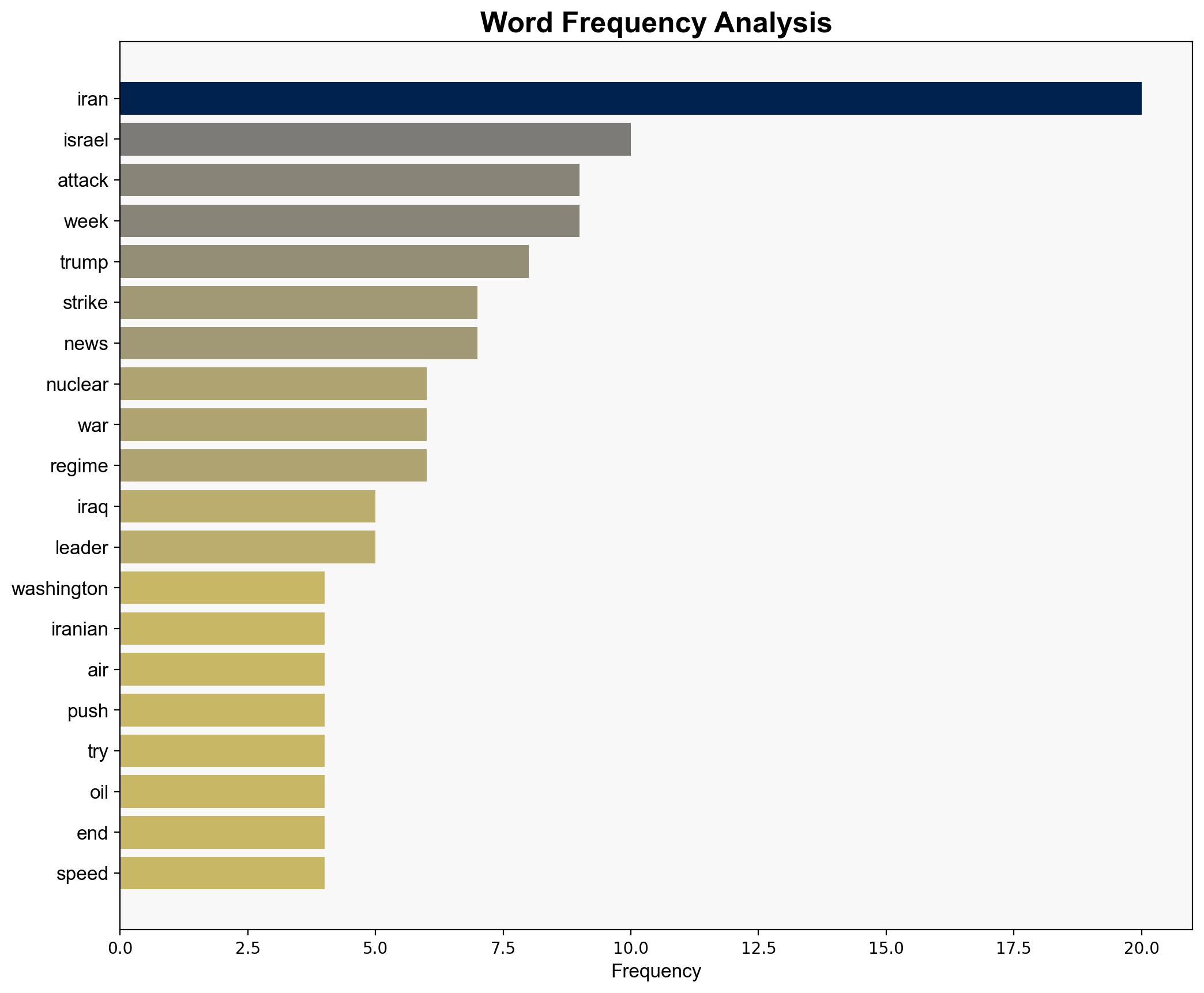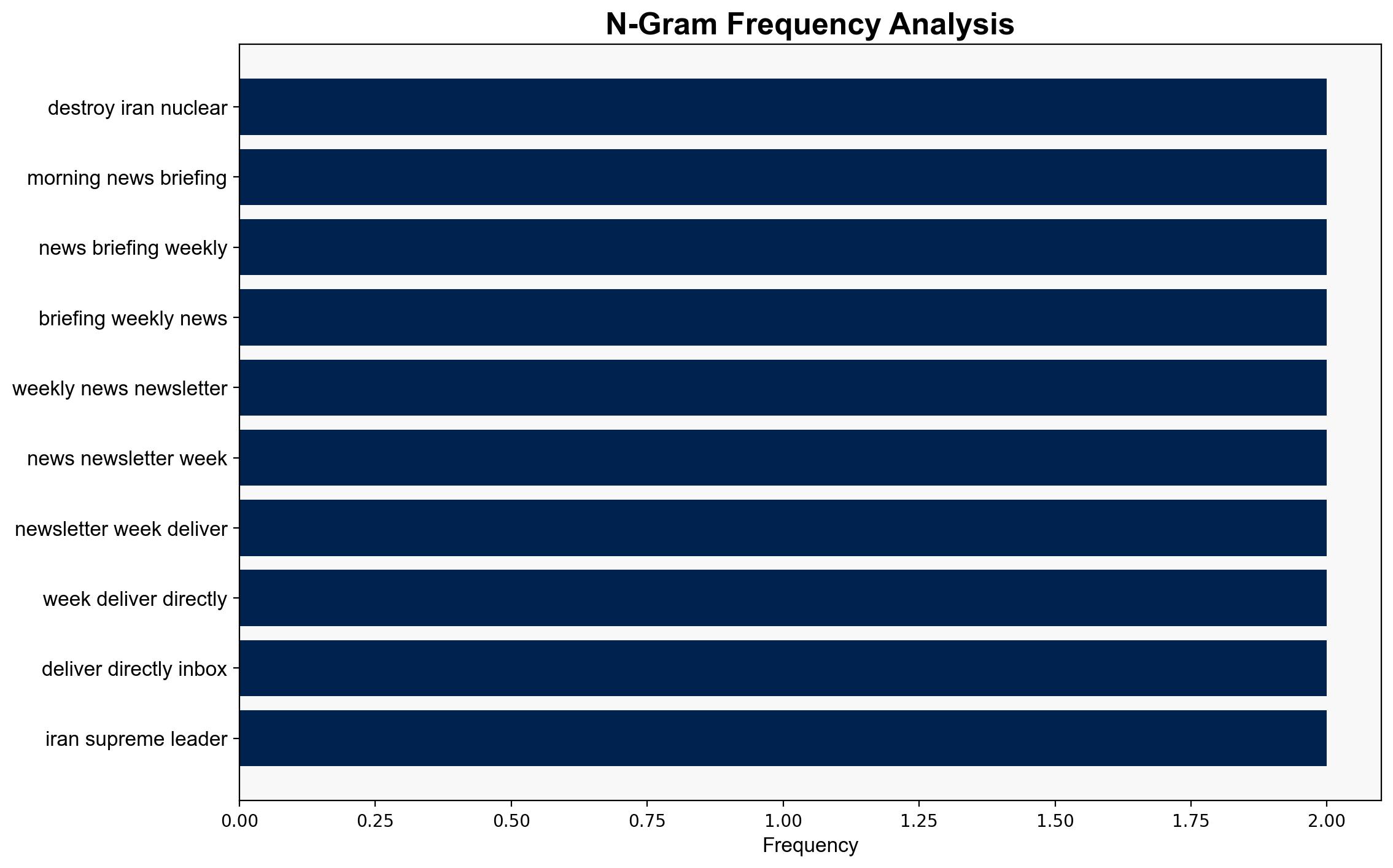What would a US strike on Iran mean for the Middle East – The Week Magazine
Published on: 2025-06-19
Intelligence Report: What would a US strike on Iran mean for the Middle East – The Week Magazine
1. BLUF (Bottom Line Up Front)
A US strike on Iran could significantly destabilize the Middle East, leading to prolonged military conflict and regional upheaval. The potential for escalation is high, with risks of retaliatory actions by Iran and its proxies. Strategic recommendations include enhancing diplomatic engagements and preparing for economic disruptions.
2. Detailed Analysis
The following structured analytic techniques have been applied to ensure methodological consistency:
Causal Layered Analysis (CLA)
Surface events: A US strike could target Iran’s nuclear facilities, aiming to dismantle its nuclear capabilities.
Systemic structures: Military alliances and regional power dynamics would be tested, with possible involvement from Israel and other regional actors.
Worldviews: The strike could reinforce narratives of Western aggression, potentially increasing anti-US sentiment.
Myths: Historical grievances and ideological divides may be exacerbated, influencing long-term regional stability.
Cross-Impact Simulation
A US strike could trigger retaliatory actions from Iran, impacting neighboring countries and global oil markets. The disruption of oil supply routes could lead to significant economic consequences worldwide.
Scenario Generation
Best Case: A limited strike achieves its objectives with minimal regional fallout.
Worst Case: A full-scale conflict ensues, drawing in multiple regional actors and leading to widespread instability.
Most Likely: A protracted conflict with intermittent skirmishes and economic disruptions.
3. Implications and Strategic Risks
The potential for a military confrontation could dominate regional politics, outlasting current US leadership. Cyberwarfare, proxy engagements, and economic warfare are likely avenues for Iran’s retaliation, posing risks to global economic stability and regional security.
4. Recommendations and Outlook
- Enhance diplomatic efforts to de-escalate tensions and engage regional partners in dialogue.
- Prepare for economic disruptions by diversifying energy sources and strengthening cybersecurity measures.
- Monitor proxy activities in Iraq, Yemen, and Syria to preempt potential escalations.
5. Key Individuals and Entities
Ayatollah Ali Khamenei, Donald Trump, Trita Parsi, Daniel Kurtzer, Steven Simon, Reza Pahlavi, Emmanuel Macron, Tony Blair, Friedrich Merz
6. Thematic Tags
national security threats, cybersecurity, counter-terrorism, regional focus





